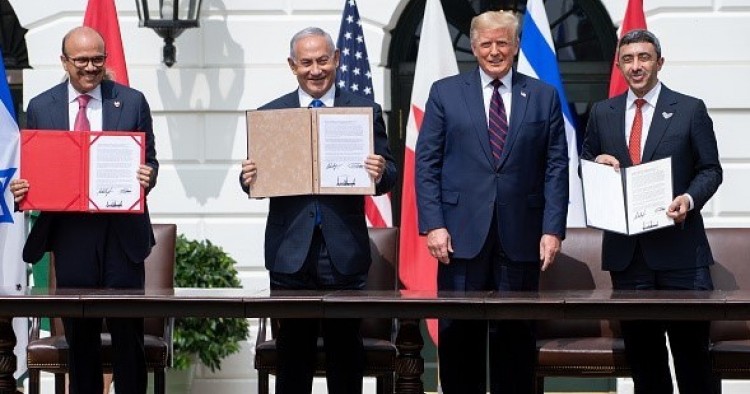The term "Abraham Accord" has gained substantial recognition in international diplomacy and geopolitical discussions. This historic agreement, often heralded as a breakthrough in the Middle East, has sparked widespread interest and intrigue. In this comprehensive article, we delve deep into the intricacies of the Abraham Accord, shedding light on its origins, significance, impact, and what it means for the future of the Middle East.
Understanding the Genesis of the Abraham Accord
The Abraham Accord, signed on September 15, 2020, represents a significant diplomatic achievement that emerged from the collaborative efforts of the United States, Israel, and the United Arab Emirates (UAE). This landmark agreement marked the establishment of formal diplomatic relations between Israel and the UAE, marking a historic departure from the longstanding Arab-Israeli conflict.
Key Signatories and Their Roles
- United States: As a key player in brokering the Abraham Accord, the United States, under the leadership of then-President Donald Trump, played a pivotal role in facilitating negotiations between Israel and the UAE. The Trump administration's proactive approach to Middle East diplomacy set the stage for this historic agreement.
- Israel: Israel, under the leadership of Prime Minister Benjamin Netanyahu, played an integral part in the development and acceptance of the accord. The accord's implications for regional stability, security, and economic prosperity resonated significantly within Israel's political landscape.
- United Arab Emirates: The UAE, led by Crown Prince Mohammed bin Zayed, demonstrated its commitment to regional peace and stability by taking the bold step of recognizing Israel as a sovereign nation. The UAE's decision was a testament to its aspiration for cooperative regional diplomacy.
Historical Context and Relevance
To fully appreciate the significance of the Abraham Accord, one must consider the broader historical context of the Middle East. The region has long been marred by political tensions, territorial disputes, and conflicts rooted in ideological differences. In this context, the Abraham Accord represents a promising path toward regional reconciliation, fostering new diplomatic relations in a historically volatile region.
The Impact of the Accord
The Abraham Accord has had far-reaching implications on various aspects of Middle Eastern geopolitics and diplomacy. It's important to note that this agreement not only normalized relations between Israel and the UAE but also laid the groundwork for other Arab nations to follow suit. The following are some key areas where the Accord has made an impact:
Economic Opportunities
The establishment of diplomatic ties between Israel and the UAE opened up a world of economic opportunities. Both countries have benefited from enhanced trade relations, increased investment, and technological collaboration. This newfound economic synergy has the potential to reshape the Middle East's economic landscape.
Security and Stability
The Abraham Accord has contributed to the overall security and stability of the region. It has encouraged cooperation on matters of defense, intelligence sharing, and counterterrorism efforts. This collaborative approach has the potential to deter common threats and promote regional peace.
Humanitarian Initiatives
The accord has also paved the way for numerous humanitarian initiatives, promoting cultural and people-to-people exchanges. Educational and cultural programs, as well as tourism initiatives, have flourished as a result of the improved relations between the UAE and Israel.
Challenges and Criticisms
While the Abraham Accord has garnered widespread support and admiration, it is not without its fair share of challenges and criticisms. Some critics argue that the accord may overlook the ongoing Israeli-Palestinian conflict, potentially hindering the prospects for a comprehensive and lasting peace in the region. Moreover, the Accord has faced opposition from some regional actors who remain wary of its implications.
The Way Forward
The Abraham Accord stands as a testament to the power of diplomacy and cooperation in resolving longstanding conflicts. It signifies a promising shift in the dynamics of the Middle East, setting the stage for more nations to join in recognizing and forging relations with Israel.
In conclusion, the Abraham Accord represents a pivotal moment in Middle Eastern history, emphasizing the significance of diplomacy, collaboration, and the pursuit of regional stability. As it continues to shape the course of the Middle East, we can only anticipate further developments, cooperation, and challenges on the path to lasting peace and prosperity in the region.
Free Speech and Alternative Media are under attack by the Deep State. We need your support to survive.
Please Contribute via GoGetFunding


